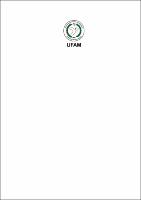| ???jsp.display-item.social.title??? |


|
Please use this identifier to cite or link to this item:
https://tede.ufam.edu.br/handle/tede/10141| ???metadata.dc.type???: | Dissertação |
| Title: | Discursos encruzilhados: um estudo do pronunciamento de autoridades de Candomblé em suas relações discursivas sobre a pessoa Trans* |
| Other Titles: | Discourses at crossroads: a study of the pronouncements of Candomblé authorities in their discursive relations with Trans* people |
| ???metadata.dc.creator???: | Pantoja, Elton Ibrahin de Vasconcelos  |
| ???metadata.dc.contributor.advisor1???: | Costa, Leonard Christy Souza |
| ???metadata.dc.contributor.referee1???: | Souza, Sérgio Augusto Freire de |
| ???metadata.dc.contributor.referee2???: | Barbosa, Cláudio Sampaio |
| ???metadata.dc.description.resumo???: | O debate sobre diversidade e identidade de gênero tem levantado questionamentos de cunhos variados. Neste caminho, esta pesquisa analisou como está construído o entendimento da pessoa transgênera (Trans*) dentro do discurso religioso do Candomblé, a partir do estudo do pronunciamento de autoridades dessa religião. Em uma abordagem qualitativa, a Análise de Discurso, na linha francesa, permitiu adentrar os sentidos que permearam o próprio discurso que junto a epistemologias decoloniais, compuseram o corpo teórico metodológico desta pesquisa. A partir da análise das formações ideológicas, foi possível compreender que os enunciados estão ancorados em sentidos, como: o discurso tradicionalista que é utilizado para justificar o apagamento das Trans*, no terreiro, por meio da falta de um histórico que ampare o lugar dessas pessoas dentro dos ritos religiosos como iniciadas; a separação das funções religiosas por sexo, que é por essência biologizante, ou diferenciada pela bio-lógica, junto ao uso de modalizadores para justificar a decisão de uma pessoa “escolher” ser Trans*. “A questão dos direitos adquiridos”, sejam eles dados por Olódùmarè (entidade da criação) a todos no Ayé (o mundo tangível), empregando a ideia de livre-arbítrio, ou por leis civis que asseguram esta liberdade para justificar o que ele considera ser uma opção. Assim, a transgeneridade, bem como a transexualidade são entendidas como uma “escolha” dentro desse discurso, além de serem consideradas fato da modernidade, sem um histórico que as conceda legitimidade. Por isso, mesmo o Candomblé sendo uma religião que acolhe, como diz o enunciador, a categoria de iniciadas, que configura vínculo efetivo com o terreiro, é apagada nesse discurso. |
| Abstract: | The debate on diversity and gender identity has raised questions of various kinds. In this way, this research analyzed how the understanding of the transgender person (Trans*) is constructed within the religious discourse of Candomblé, based on the study of the pronouncement of authority of this religion. In a qualitative approach, Discourse Analysis, in the French line, allowed us to enter the meanings that permeated the discourse itself, together with the decolonial epstemologies, composed the theoretical methodological body of this research. From the analysis of the ideological formations, it was possible to understand that the statements are anchored in meanings such as: the traditionalist discourse that is used to justify the erasure of the Trans*, in the terreiro, through the lack of a history that supports the place of these people within the religious rites as initiates; the separation of religious functions by sex, which is essentially biologizing, or differentiated by bio-logical. Along with the use of modalizers to justify a person's decision to "choose" to be Trans*. "The question of acquired rights" whether they are given by Olódùmarè (the entity of creation) to everyone in the Ayé (the tangible world), employing the idea of free will, or by civil laws that ensure this freedom to justify what he considers to be an option. Thus, transgenderism, as well as transsexuality, are understood as a "choice" within this discourse, in addition to being considered a fact of modernity, without a history that grants them legitimacy. Trans* women are allowed to move around the common spaces as consultants/clients. For this reason, even though Candomblé is a religion that welcomes, as the enunciator says, the category of initiates, which configures an effective link with the terreiro, is erased in this discourse. |
| Keywords: | . |
| ???metadata.dc.subject.cnpq???: | LINGUISTICA, LETRAS E ARTES: LINGUISTICA: TEORIA E ANALISE LINGUISTICA |
| ???metadata.dc.subject.user???: | Análise de discurso Candomblé Materialismo histórico Religião Transgênero |
| Language: | por |
| ???metadata.dc.publisher.country???: | Brasil |
| Publisher: | Universidade Federal do Amazonas |
| ???metadata.dc.publisher.initials???: | UFAM |
| ???metadata.dc.publisher.department???: | Faculdade de Letras |
| ???metadata.dc.publisher.program???: | Programa de Pós-graduação em Letras |
| Citation: | PANTOJA, Elton Ibrahin de Vasconcelos. Discursos encruzilhados: um estudo do pronunciamento de autoridades de Candomblé em suas relações discursivas sobre a pessoa Trans*. 2024. 142 f. Dissertação (Mestrado em Letras) - Universidade Federal do Amazonas, Manaus, 2024.. |
| ???metadata.dc.rights???: | Acesso Aberto |
| ???metadata.dc.rights.uri???: | https://creativecommons.org/licenses/by-nc-nd/4.0/ |
| URI: | https://tede.ufam.edu.br/handle/tede/10141 |
| Issue Date: | 4-Mar-2024 |
| Appears in Collections: | Mestrado em Letras |
Files in This Item:
| File | Description | Size | Format | |
|---|---|---|---|---|
| DISS_EltonPantoja_PPGL.pdf | 2.44 MB | Adobe PDF |  Download/Open Preview |
Items in DSpace are protected by copyright, with all rights reserved, unless otherwise indicated.




